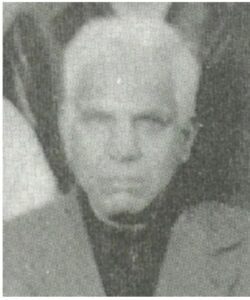Imagine a celestial tapestry, shimmering with threads of divine essence. Among them, one radiant strand stands out – Lal Ded, a mystic poetess whose very being defied earthly constraints. Like a luminous moonbeam piercing the velvet night, she transcended the mundane, embodying unwavering devotion and weaving verses that echoed with celestial fire.
AMI PANA SUDDRAS NAVE CHASS LAMAN
KATI BOZI DUY MYON MEYTI DIYI TAAR
AMEYE TAKEYN PONIV ZAN SHEMAN
ZUV CHUM BRAMAN GARA GATSHAHA
“With a towline spun from fragile thread, I guide
my boat across the boundless sea.
May God heed my plea
and safely bring me ashore!
Like water in cups of unbaked clay,
I flow away without a trace.
Oh, may I reach my destined home!”

A woman cloaked in defiance, draped in devotion, her words like molten silver carving verses onto the soul – that was Lal Ded, the 14th-century mystic poet who ignited Kashmir’s literary landscape. Born into a world of rigid traditions, Lal Ded dared to break free, not with violence, but with the quiet thunder of her Vakhs – poems that crackled with spiritual insight and everyday wisdom.
Her early life was a tapestry woven with hardship. Married at a tender age of twelve, she faced the cruel hand of fate – an abusive mother-in-law and an indifferent husband. Yet, Lal Ded’s spirit refused to be dimmed. She sought solace in the embrace of Lord Shiva, the supreme deity of Kashmir Shaivism. On the banks of the Jhelum River, she met her guru, Siddha Srikanth, who unlocked the doors of yoga and meditation, leading her on a path of spiritual awakening.
Transformed by enlightenment, Lal Ded shed the shackles of her worldly life. She embraced the open sky, her bare feet tracing the dusty paths of Kashmir, her voice carrying the weight of her Vakhs. These weren’t mere poems; they were embers of rebellion, challenging the rigid caste system, social discrimination, and hypocrisy that choked the society.
Lal Ded, also known as Lalla, Lal Arifa, Lalleshwari, Lal Yogeshwari, and Lalla the great, was a 14th century Kashmiri mystic and poet. She was the creator of Vakhs, a kind of poetry that expresses spiritual insights and experiences in simple and powerful language. Lal Ded’s verses are some of the earliest compositions in the Kashmiri language and form an integral part of the Kashmiri literature and culture.
Lal Ded was born in 1320 in Pandrethan, near Pampore, in the district of Pulwama, in a Kashmiri Pandit family. She was educated in the religious texts and married off at the age of 12 to a family that regularly mistreated her. Her mother-in-law was cruel and abusive, and her husband was indifferent and unfaithful. Lal Ded endured the hardships of her married life with patience and devotion, but she was not happy. She longed for a higher purpose and a deeper connection with the divine.
She found her solace in the worship of Lord Shiva, the supreme deity of the Kashmir Shaivism school of Hindu philosophy. She would spend hours at the temple of Shiva on the other side of the river, where she met her guru, Siddha Srikanth, who initiated her into the path of yoga and meditation. Under his guidance, Lal Ded attained spiritual enlightenment and realized her true nature as one with Shiva. She then renounced her worldly life and possessions, and wandered around naked or in rags, singing her Vakhs to the people. She became known as Lal Ded, which means “Lalla, the grandmother”, as a sign of respect and affection.
Lal Ded’s Vakhs are spontaneous expressions of her mystical experiences and teachings. They are short, simple, and profound, often using metaphors and symbols from nature and everyday life. They convey the essence of Kashmir Shaivism, which is based on the recognition of one’s own self as identical with the universal consciousness. Lal Ded’s Vakhs also reflect her openness and tolerance towards other faiths and traditions, such as Sufism and Buddhism. She often engaged in dialogue and debate with other saints and scholars, and challenged the rigid and orthodox views of the elite and the clergy. She was a rebel and a reformer, who questioned the caste system, the social and religious discrimination, and the hypocrisy and corruption of the society. She advocated for the equality and dignity of all human beings, regardless of their gender, class, or creed. She was a source of inspiration and guidance for the masses, who loved and revered her as their mother.
Lal Ded died in 1392, leaving behind a legacy of spiritual wisdom and poetic beauty. Her Vakhs have been preserved and transmitted orally by the people of Kashmir for centuries, and have been translated and interpreted by various scholars and writers. Her Vakhs have influenced the development of the Kashmiri language and literature, and have enriched the cultural heritage of Kashmir. Lal Ded is widely regarded as the greatest poetess of Kashmir, and one of the most influential mystics of India. She is a symbol of Kashmir’s syncretic and pluralistic ethos, and a role model for generations of seekers and lovers of God.
Siddha Srikant ( Guru of Lal Ded)
Siddha Srikanth was a Kashmiri Shaivite saint and scholar who lived in the 14th century. He was the family priest and spiritual guru of Lal Ded, the famous mystic poetess of Kashmir. He initiated her into the Shaivite Sampradaya, a tradition of Hindu philosophy and practice that worships Lord Shiva as the supreme reality. He also taught her the scriptures and the methods of yoga and meditation. He was a respected and influential figure in the Kashmiri society, and he had dialogues and debates with other religious leaders and thinkers, such as the Iranian Sufi Mir Syed Ali Hamdani and Nund Rishi. He is credited with composing some hymns and verses in praise of Shiva and his consort Parvati. He is also regarded as one of the pioneers of the Kashmiri language and literature, along with Lal Ded.
Shiv Bhakti
Lal Ded’s shiv bhakti, or devotion to Shiva, is not limited to a sectarian or ritualistic approach. She views Shiva as the supreme reality, the source and goal of all existence. She identifies herself with Shiva, saying “I am He and He is me”. She also recognizes Shiva in everything and everyone, saying “Shiva abides in all that is”. She seeks to merge with Shiva through love, knowledge, and detachment. She practices yoga, meditation, and self-inquiry to attain this union. She also advocates ethical conduct, compassion, and social justice as expressions of shiv bhakti
Even after her passing in 1392, Lal Ded’s legacy continues to bloom. Her Vakhs, preserved for centuries by the whispers of Kashmir’s people, have been translated and cherished, their essence woven into the very fabric of Kashmiri language and literature. She remains a symbol of Kashmir’s syncretic spirit, a testament to the power of a single voice to ignite a revolution, not with weapons, but with the transformative fire of words.
Lal Ded’s story is a testament to the human spirit’s ability to rise above adversity, to find solace in the divine, and to challenge the status quo with the gentle yet potent force of love and wisdom. In her, we see not just a poet, but a mystic, a rebel, and a mother, her legacy as eternal as the snow-capped peaks of her beloved Kashmir.
Like Lal Ded, who dared to defy societal norms and sing her truth naked and free, may we too shed our limitations and embrace the divine spark within. As her Vakh proclaims, “Within this earthen pot, the same Light shines as in the sun and moon.” Let your light shine, dear reader, and illuminate yiour world with a great purpose of life.
Discover the life and poetry of another great Kashmiri poetess, Habba Khatoon.





Pingback: Kashmir Shaivism: Philosophy, Origins, and the Saints - The Forgotten Exodus: The Tragedy of Kashmiri Pandits